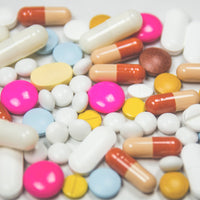Frequently asked questions about ADHD can be a helpful subject to review when you start to look for answers yourself. If you have a child who was recently diagnosed with ADHD, where do you even begin to look for the answers?
Many parents feel lost and helpless when they first hear that their child has ADHD. The negative stigma that surrounds ADHD presents them with an uncertain future. Does this mean there is something wrong with my child? Can they get better? How do I get them help?
Overwhelmed by where to start
The amount of questions surrounding ADHD typically overwhelms the average parent. If you just found out that your child has ADHD, you need to start with the understanding that, no, there is nothing wrong or weird with your child. Rather, your child has a different wiring of their brain that causes certain traits, behaviors, and systems.
Secondly, you need to know that others have gone before you and have been where you find yourself now. They had questions as you do. We believe we can help you get started with at least addressing some of the most basic questions you probably face right now.
In this post, let’s look at some of the most frequently asked questions about ADHD. We want to give you some direction and answers to these questions as at least a starting point as you learn more about ADHD.
What is ADHD?
Let's start off our list of frequently asked questions about ADHD with the very basics. We all might feel we know a little bit about ADHD, but can we trust what we think know? Possibly, but let’s review just to be sure, and address one of the most frequently asked questions about ADHD: what is it?
To begin with, ADHD stands for Attention-Deficit Hyperactive Disorder. ADHD is a brain syndrome or alternative wiring of the brain that produces symptoms of highly energetic hyperactive behavior and results in lower executive functioning skills. Executive functioning skills impacted include memory, focus, attention, impulsivity, and social skills amongst others. ADHD for most purposes is used interchangeably with ADD, although, ADD children might show less of a tendency towards hyperactivity.
You can find more information on ADHD, the specifics of the condition, and its history at the following link on ADHD facts.
What are the Symptoms of ADHD?
You will find the symptoms of ADHD on almost any list of frequently asked questions about ADHD. Most of the time, people want to know what to look for before seeking out an actual diagnosis or consulting with a doctor. In short, you might want to know the symptoms to answer the basic question, does my child have ADHD?
The principle symptoms of ADHD include inattention or lack of focus, hyperactivity, and impulsivity. Children with ADHD might appear forgetful or often disobedient. They might fidget and move in their chairs or be excessively active as compared with their peers. Additionally, your child might have more trouble focusing or concentrating than other kids. Children with ADHD typically don’t seem to listen when told instructions and switch quickly from one activity to another and make quick impulsive decisions.
If you see many of these symptoms that appear excessive for your child’s age and their environment, you might want to look further and ask more questions. To read more about the symptoms of ADHD you can find more information in this article through WebMD. Also, if you want to go through the symptoms that you believe your child shows, you can use this great symptom checker found through this link.
How is ADHD Diagnosed?
If you just found out that your child does or may have ADHD, you might have just gone through the process of understanding how we diagnosis ADHD. Unfortunately, the path to an ADHD diagnosis can be a complicated and confusing one. For instance, many children might show signs of inattention or hyperactivity at isolated times. Does this constitute ADHD, though?
Consult your doctor
To really identify if your child has ADHD, you need to first consult with your doctor. Teachers or counselors might recommend or suggest you have your child tested, but a diagnosis should be made through your doctor. In consulting with your doctor, your doctor will ask you questions about your child’s behavior, age, and how often and for how long symptoms appear.
For children, symptoms must have first shown in your child before the age of 7 and been present for at least six months. Also, symptoms must appear in at least two different settings. Many times, symptoms will appear first at school. You’ll want to document the behavior in more than just a school setting, though. Finally, the symptoms should be inappropriate or excessive for the situation at hand.
When you meet with your doctor, your doctor will ask questions and perform some assessments to judge the severity of symptoms and other factors and make sure to rule out other causes other than ADHD. After going through assessments and ruling out other factors, your doctor might then diagnosis ADHD and then work with you to determine an effective plan of action. For more information on an ADHD diagnosis, refer to this article from PsychCentral.
Can Behavioral Management Alone Help ADHD?
More than likely, we have all heard of behavioral management or at least understand it at the very basic level. In short, behavioral management involves adjusting or correcting certain behaviors in order to get a desired result. We see this all the time, especially as parents. We don’t want our kids drawing on walls, so when they try to do this we reorient their behavior through discipline or replacing the behavior with some other activity.
Ultimately, we find this listed as one of the frequently asked questions about ADHD because what parents really want to know is: does my child really need medication or another intervention? The answer to all of these questions, unfortunately, is it depends.
No matter the negative behavior, ADHD driven or not, all of us would typically prefer behavioral management over more intensive steps. Think of any negative behavior, and this truth still applies. It could be drinking alcohol or smoking cigarettes or reacting in anger. Most any of us would simply want to use behavioral management to correct negative behaviors as opposed to the additional investment of seeing a counselor or taking a pill.
In practice, though, behavioral management just doesn’t work for everyone in every situation. For most all cases of ADHD, you definitely should start with behavioral management. You should try to redirect negative behaviors both at home and at school and other places as needed. If this doesn’t work, though, you should consider use of other interventions such as prescription medication.
Should I take Medication to Treat ADHD?
This one of the most frequently asked questions about ADHD scares most parents. Medications frighten us because of what taking them might imply. You need to keep in mind, though, that taking prescription medication does not mean that there is something “wrong” or “broken” with you or your child. Rather, you need to view medication as another tool to help manage and direct your child's actions and thoughts.
We use such tools all the time. Other tools might include having the right diet, exercising on a daily basis, or having coffee in the morning. Medication can provide benefits that your child might need, and it should never be ruled out altogether. As a parent you need to inform yourself about medication options. For a good place to begin, helpful information on ADHD medication options can be found at this link.
What about Supplements? Do They Really Make a Difference?
You most likely see questions about medication and supplements closely connected on many lists of the most frequently asked questions about ADHD. The reason these two options follow one after the other is that they both seek to provide intervention through use of a regulated substance. The difference comes in that the pill or dosage for medication requires doctor approval while supplements do not.
Additionally, medications must go through a much more rigorous testing process than most supplements. This doesn’t mean that some supplements cannot provide as much benefit in some instances as medications. Rather, this just means that not as many trials or scientific tests might have been conducted on supplements as you may find for medications.
In short, supplements can possibly make a difference in your case. Like medication, you should not rule them out altogether without researching or consulting with your doctor. There exist many supplement options with documented positive benefits. These include Omega-3 supplements, DHA supplements, amongst others.
Many doctors have recommended these supplements to patients with much positive effect. Supplements have been shown to increase focus and reduce inattention with oftentimes less side effects than medicine.
Supplements might at first seem more daunting than medicine as you might just not hear as much about the different supplements available. This doesn’t mean, though, that science and studies and examples testifying to their effectiveness don’t exist. Yes, it will take some time and investment on your part to research supplements, but you can benefit from the information you find out. Consult with your doctor on various options and dosage amounts and work to find out if supplements might benefit your child with ADHD. For more information on supplements and the options available, refer to the article at this link.
Do Medications and Supplements have any Negative Side Effects?
The concern over medication and supplement use for ADHD goes beyond their effectiveness to address ADHD symptoms. Beyond effectiveness, parents, understandably, want to know about the potential side effects of such an intervention. We get it. Medication can be a scary proposition especially when talking about someone’s child hence the reason for this being one of the frequently asked questions about ADHD.
In short, any medication comes with side effects. No matter how effective the treatment might be or how safe, any medication has the potential for negative side effects. This includes over the counter drugs such as Tylenol or Advil up to prescriptions for ADHD such as Adderall.
Now, this is in no way trying to make light of serious potential side effects of some drugs. Rather, we do need to recognize, no possible recourse of action comes risk free.
Yes, medications for ADHD have the potential for side effects. In most cases, though, they are mild and can be easily managed. Talk to your doctor about the options available and their positives and negatives. Weigh the pros and cons and find what works best for you. For more information on potential side effects from ADHD medication refer to the article at this link.
My Child Has ADHD, Where Do I Go from Here?
If you just found out that your child has ADHD, you might now still be trying to recover from the initial shock. You may have never thought or wanted to acknowledge that your child has ADHD. The next steps might be the hardest steps you have taken in a while.
Recognize your child's strengths
The first step to take should involve recognizing and acknowledging that ADHD can provide many benefits. You first need to realize and recognize the many strengths of ADHD and your child.
Commit to supporting your child
At the same time, you need to commit yourself to helping and supporting your child with ADHD. ADHD presents many challenges and difficulties such as difficulty with school work, disobedience, uncontrollable outbursts, and other difficult behaviors and reactions. Your child needs your help to control and redirect their actions and energies. You can’t simply ignore ADHD or wish it away. You need to invest in your child and be a positive support for them.
Become your own expert
Finally, your next steps should involve getting yourself more informed and supported. You need to do your own research and become your own ADHD expert. Additionally, like your child, you also need support. Tell your friends and families about your child’s ADHD, and ask for their help in developing effective behavioral strategies. Consult with doctors and teachers. Lastly, read as much about ADHD as possible and put it into practice in your home and in your child’s life.
Frequently Asked Questions about ADHD: A Good Place to Start
We all need some help sometimes with just knowing where to get started. If you have a child recently diagnosed with ADHD, you might find yourself in that position right now. Because of the stigma it carries, you know some things, rumors and conjecture and anecdotes, about ADHD, but nothing that actually helps you where you find yourself right now.
We hope this post helps give you a place to start for finding the next steps in your journey with ADHD. Here at FastBraiin, we want to give parents like you the tools you need to help manage ADHD symptoms within the home and find success for your family and child. If you found this post helpful, please consider looking deeper into our other posts and videos.
We want to help you find the right path forward. You have a great place to start. Now, let’s work together to find the next steps forward.




